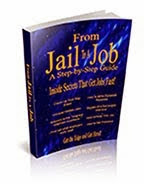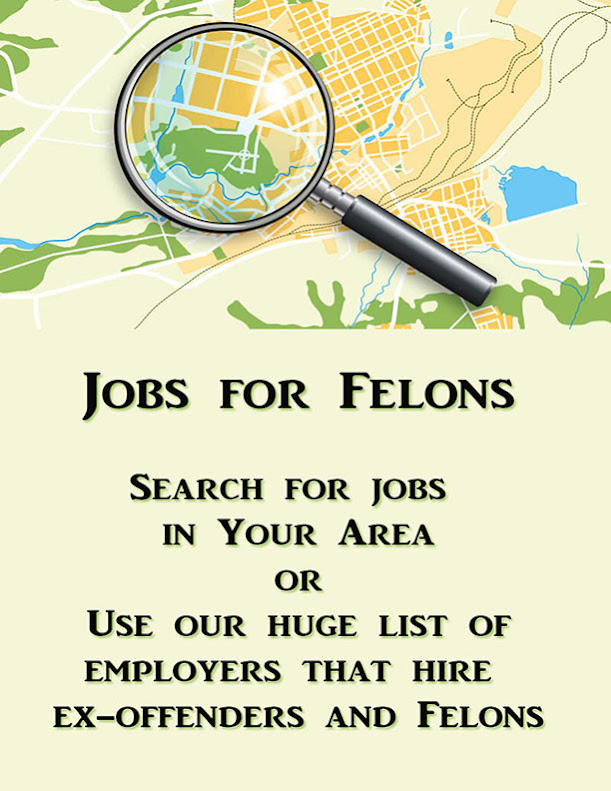( Nati Harnik / Orlando Sentinel)
The COVID-19 pandemic has created unprecedented barriers to the already difficult process of former inmates navigating their return to society, leaving advocates scrambling for new ways to help.
The crisis has halted some reentry programs entirely, limited the resources available to their clients or forced them to operate virtually. Advocates say some returning citizens will find the help simply isn’t there.
Then there’s the always-daunting challenge of finding a job. Without one, released inmates are unable to pay fines and fees associated with reentry, like the supervision fees often required for probation. Maintaining employment is often a requirement of supervision — and failing to do so can count as a violation.
Jill Viglione, a researcher and assistant criminal justice professor at UCF, recently contacted 213 community parole and probation agencies nationwide, finding that 30% to 50% of supervised people have lost their jobs since the pandemic began, the majority of which were in the service industry.
Out-of-work ex-offenders now find themselves among a flood of the newly unemployed people, many without the burden of a criminal history.
“It has the potential to really set a lot of people back who might have been working really hard to find a job or working really hard to maintain the job that they’ve had, and I’m worried about them for the future,” Viglione said.
‘The box’ still a barrier
David Crout, who spent four years in prison before being released in 2014, knows how tough it is to find a job.
“When I got out of prison, I was walking with the clothes on my back, no money,” said Crout, now 54.
Crout had lost a hospital job after he became addicted to prescription drugs and was convicted on endangerment and larceny charges. He lived at a homeless shelter after he was released from prison while looking for a stable job that offered a livable wage — without any luck.
“Twenty years of working in a hospital, but they don’t look at that when I look for an apartment, they don’t look at that when I look for a job, they look at ‘ex-offender,‘” he said. “ ... It’s a stigma, like homelessness, that’s placed on people.”
Crout eventually got back on his feet and moved to Leesburg, where he’s currently searching for a new job in a challenging market that has seen many workers laid off or unemployed in recent months.
Advocates worry employers’ prejudice against people with a criminal background, which is always a challenge ex-offenders face, will be even more difficult to overcome when so many people are out of work and seeking jobs.
“People who don’t have a criminal background are vying for those same jobs, because now they’re unemployed and they’re having to look outside their own preferred field or their own career,” Osceola County Jail reentry specialist Christina Mayo said. “… The competition is so much higher.”
Often, that prejudice arises in the first step of the hiring process: a screening question asking whether an applicant has been convicted of a felony is a staple on most job applications.
The nationwide “Ban the Box” campaign has been fighting to eliminate that hurdle for nearly two decades.
“The point is to actually look at the person as a person, look at their job skills and then find out, if there is a conviction history, does it have something to do with the job,” said Mark Fujiwara of Legal Services for Prisoners with Children, the nonprofit that started the campaign.
Florida currently has no statewide law banning the box. A bill that proposed preventing employers from asking about a job candidate’s criminal background in the first stages of the hiring process died in committee in March.
But some cities have removed the question from employment applications. Orlando banned the box for applicants to city positions in May 2015.
Desmond Meade, executive director of the Florida Rights Restoration Coalition, said another approach governments can take is to give priority in awarding contracts to businesses that hire ex-offenders.
Fujiwara suggested banning the box could help the economy well after the country recovers from the pandemic. But the current work-from-home boom presents potential pitfalls for ex-offenders, who may have limited access to and experience with the technology involved.
“A lot of people don’t have the skills or the resources to participate in the socially distanced, remote workforce,” Fujiwara said.
Finding work is essential to successful reentry, Meade said. In addition to having to pay fees associated with probation or parole and afford housing and transportation, a former prisoner could owe child support or face fines that can make it difficult to obtain a driver’s license, which in turn makes it difficult to get a job.
“This person is forced to pay for financial obligations that he has, but ... he’s prevented from actually being able to do the work,” Meade said.
Job counseling goes virtual
Usually, Turning Point Counseling works with inmates considered at risk of recidivism in a classroom setting at the Osceola County Jail to address their post-release concerns and create transition plans.
But COVID-19 has halted the mental health and life skills services program from accepting new inmates. One-on-one sessions are currently the only option, and even those have become difficult to arrange due to restrictions on inmate movement within the jail.
“It may be awhile before we can get back to that typical method that this program was really designed to do,” said Joanne Turner, who founded Turning Point Counseling in 1995. “... We’re doing the best that we can, and I know other programs like ours probably feel the same way.”
As the pandemic continues, Turner is rethinking how Turning Point will assist people in the future, whether it’s through Plexiglas at the jail’s chaplain’s office or through Zoom sessions with ex-offenders after they’re released.
Viglione said use of virtual methods to track and supervise ex-offenders has risen in the months since the pandemic started. Her June survey of 213 supervision agencies found that 91% were meeting with people through video conferencing, something nearly all of those surveyed said they’d implemented due to COVID-19.
Others are still meeting with clients in person, through drive-up curbside meetings or other socially distanced measures, Viglione said.
Job centers, too, have had to embrace a hybrid approach.
Ryan Ridley, career center manager at CareerSource Central Florida’s West Orange County office, said most of the workforce planning agency’s services, including one-on-one career counseling assistance and skill training seminars, have gone online.
Goodwill of Central Florida’s job connection centers have also gone virtual. That initially posed a challenge for job seekers who didn’t have access to computers or smartphones at home, but has become less problematic since libraries reopened, said Kim Praniewicz, senior director of marketing, communications and workforce development.
Goodwill has continued to offer employment resources to people behind bars. Life skills programs for inmates in the Orange County Jail are now contactless, with inmates completing coursework for the Goodwill team to review and provide feedback.
Goodwill representatives said they haven’t seen hiring slow during the pandemic overall, but there’s been a shift in which industries are hiring. Praniewicz said hiring in the hospitality industry slowed, while warehouse and transportation positions opened up as the supply chain shifted.
Ridley said the trade and logistics industry in particular has seen increased demand, especially for commercial drivers, which Ridley said “tends to be the most friendly and tolerant background employer.”
‘It’s tough, mentally'
Crout, who is looking for a job in Leesburg through Goodwill, said he has seen other ex-offenders struggle to find work during the early months of the pandemic.
“There aren’t as many positions out there,” he said. “It’s tough, mentally.”
Ten years after he was convicted for endangerment and larceny — the former for keeping the pain pills in his car within his family’s reach and the latter for stealing his grandmother’s jewelry to support his addiction — Crout hopes to work in outreach and use his story to motivate others to make good decisions.
“You have to be strong. A lot of people are in the same position as I am, but there are a lot of people a lot worse than me, too,” Crout said. “... My worst day out here is better than my best day in prison.”



















